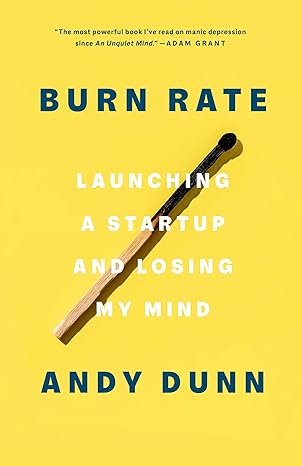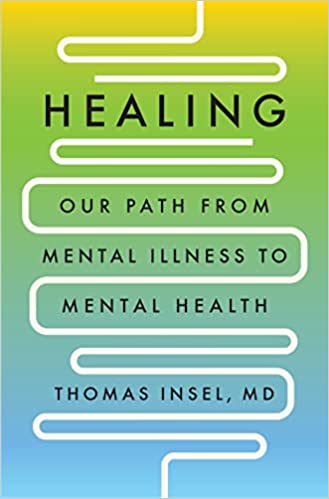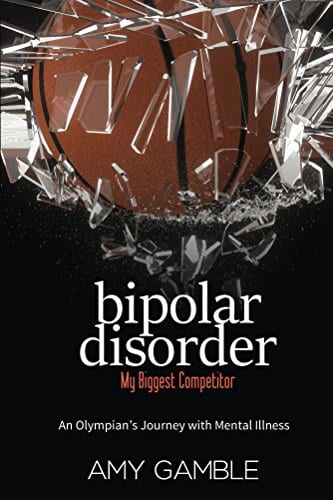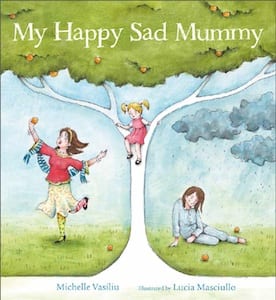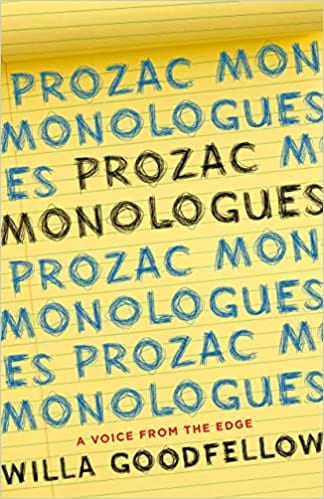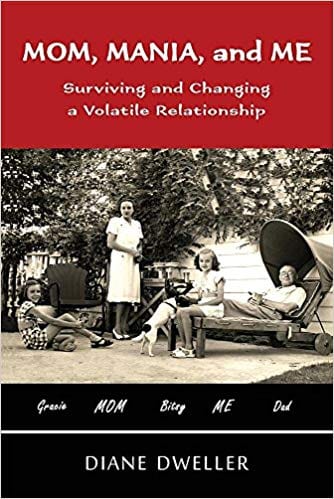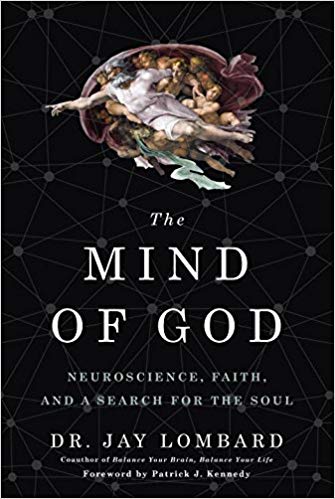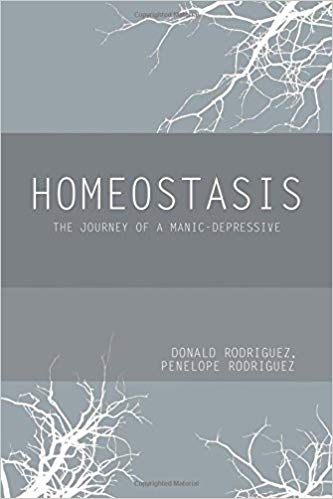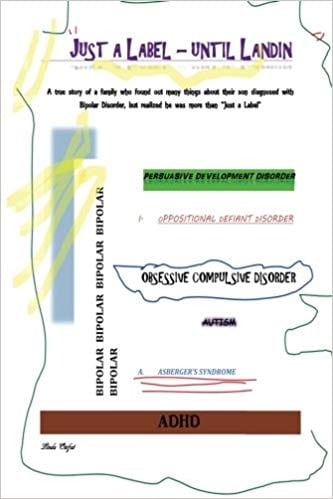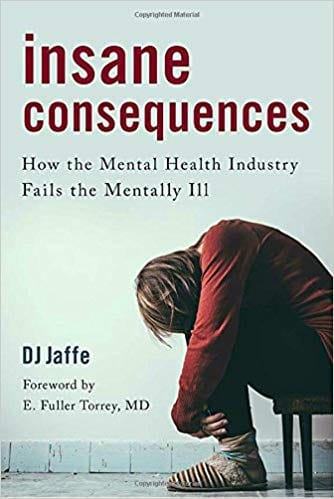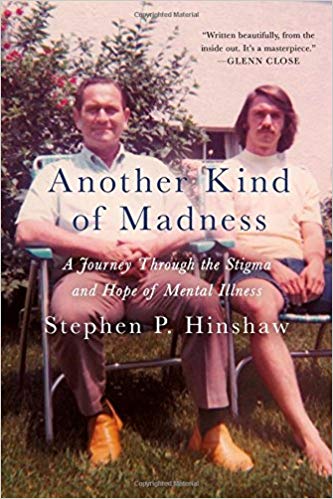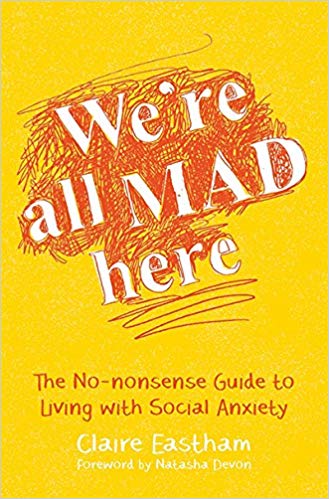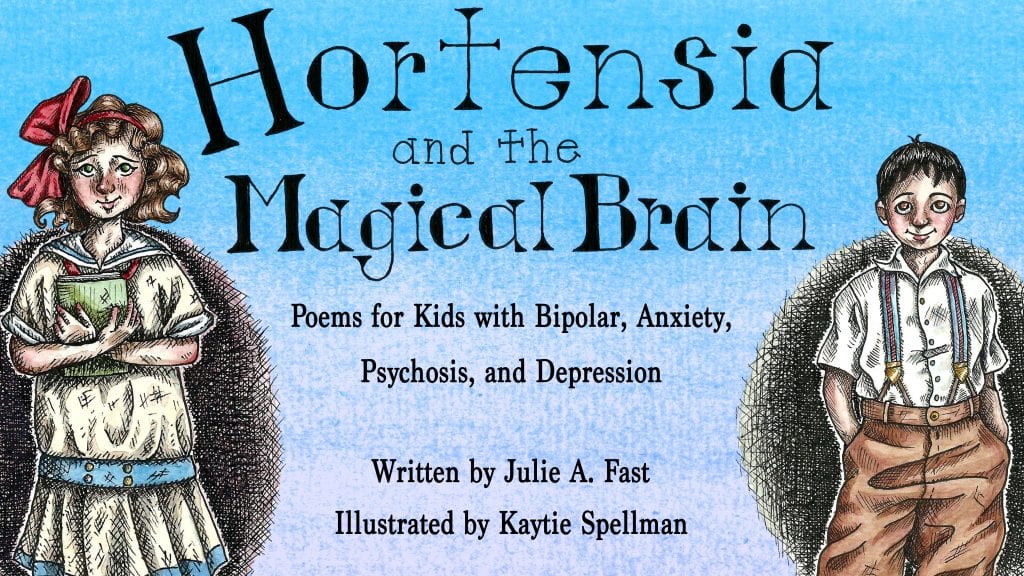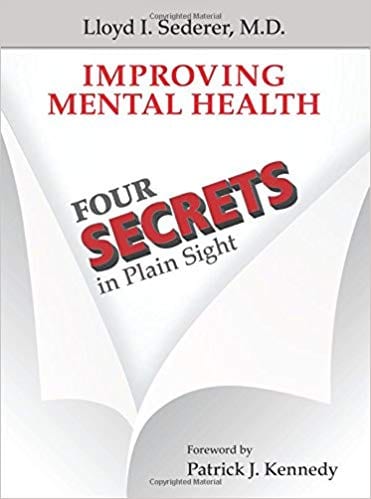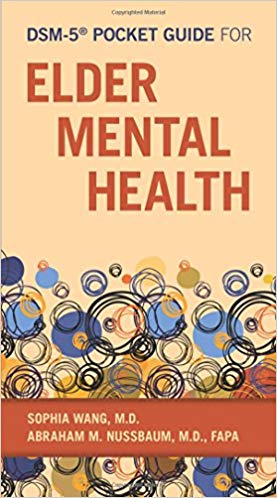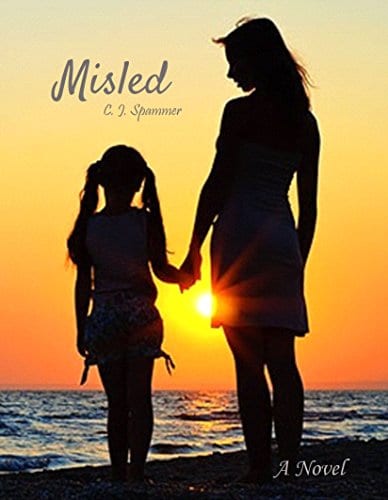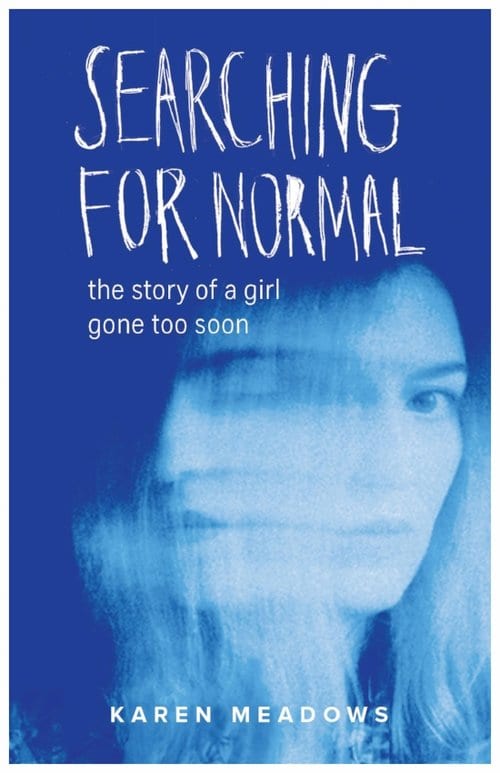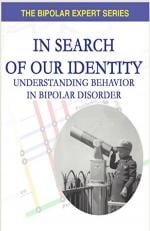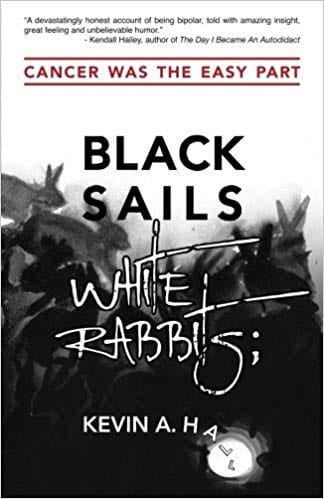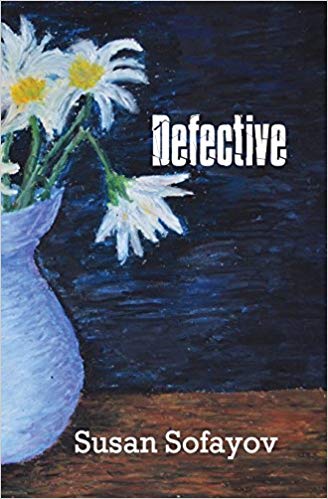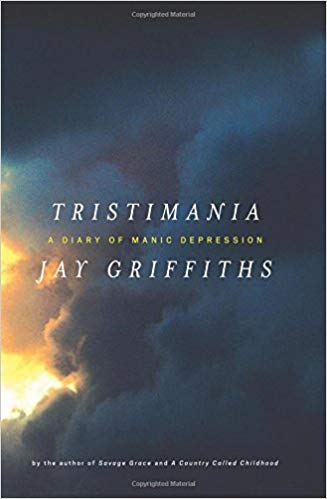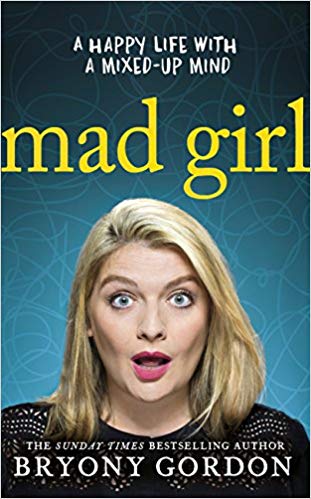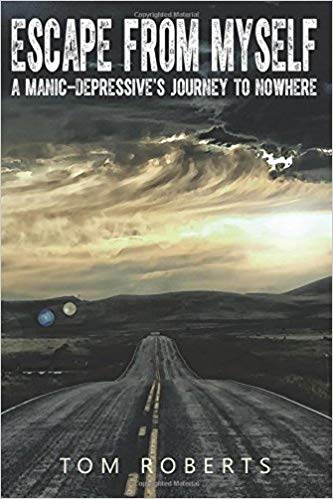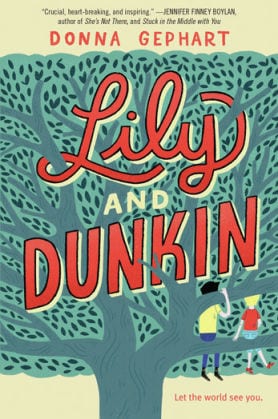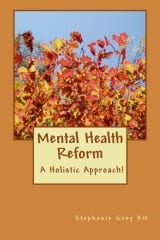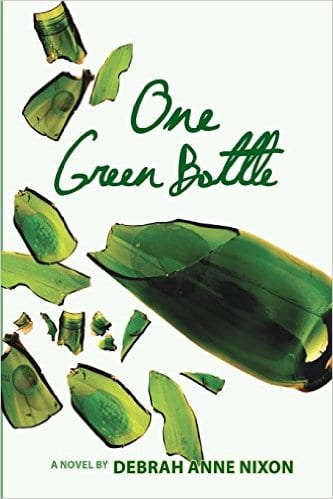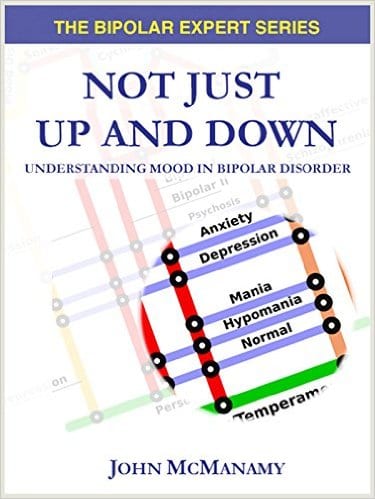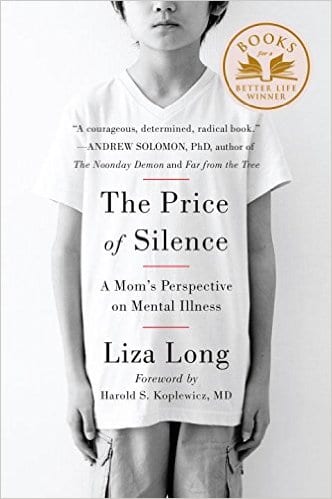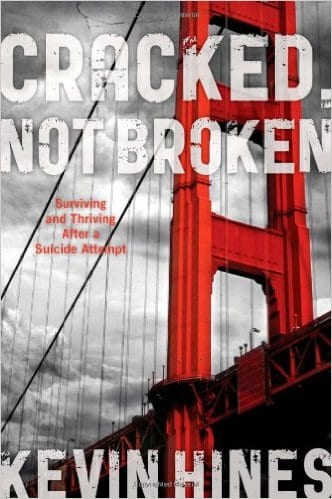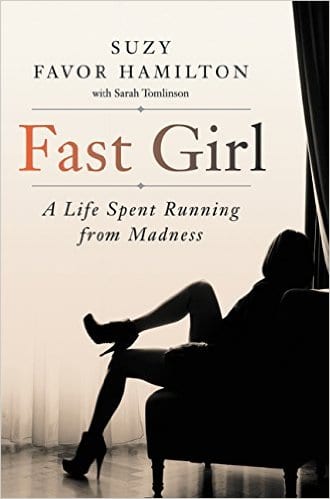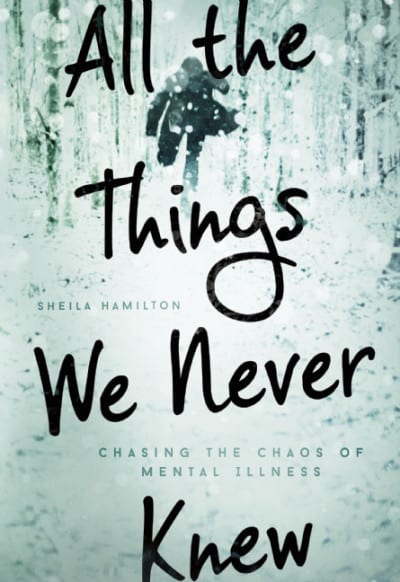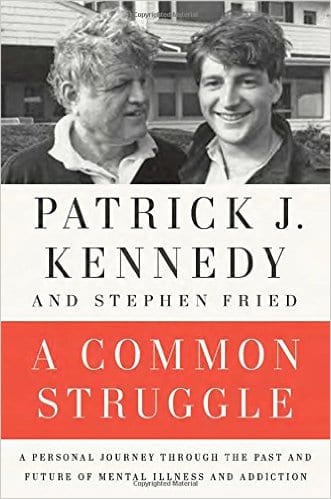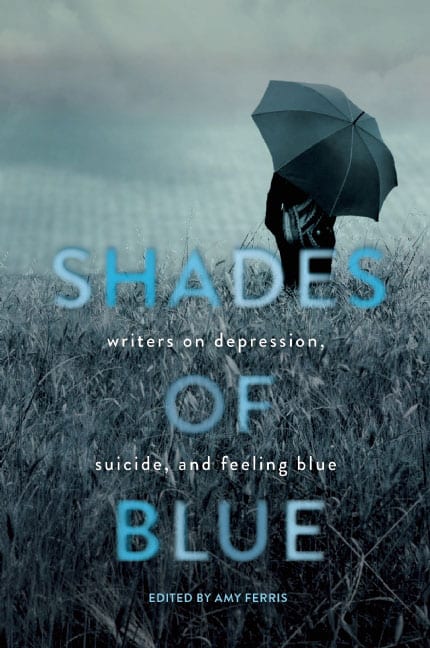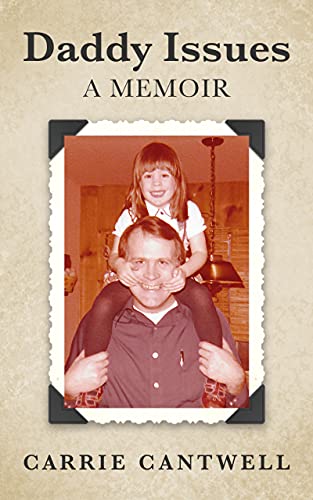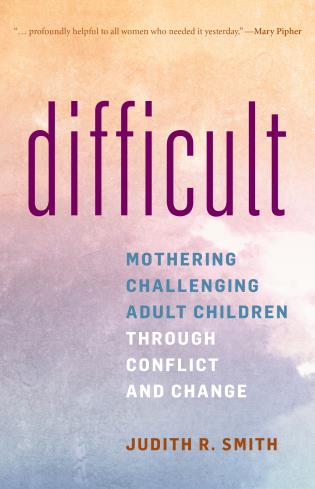Mental Health Books
Books on Bipolar Disorder and Mental Health
The Bipolar Disorder Survival Guide, Third Edition: What You and Your Family Need to Know
Bipolar disorder is a lifelong challenge–but it doesn’t have to rule your life. Find the science-based information you need in the revised third edition of this indispensable guide. Trusted authority Dr. David J. Miklowitz shares proven strategies for managing your illness or supporting a loved one with the disorder. Learn specific steps to cope with mood episodes, reduce recurrences, avoid misdiagnosis, get the most out of treatment, resolve family conflicts, and make lifestyle changes to stay well. Updated throughout, the third edition has a new chapter on kids and teens; the latest facts on medications and therapy, including important advances in personalized care; and expanded coverage of the bipolar II subtype. It features boxes on complementary and alternative treatments and provides downloadable practical tools. Dr. Miklowitz serves on IBPF’s Scientific Advisory Board.
Burn Rate: Launching a Startup and Losing My Mind
Burn Rate is an unconventional entrepreneurial memoir, a parable for the twenty-first-century economy, and a revelatory look at the prevalence of mental illness in the startup community. With intimate prose, Andy Dunn fearlessly shines a light on the dark side of success and challenges us all to take part in the deepening conversation around creativity, performance, and disorder.
A Truck Full of Money
Bipolar General: My Forever War with Mental Illness
Modern Madness: An Owner's Manual
An Unquiet Mind: A Memoir of Moods and Madness
In her bestselling classic, An Unquiet Mind, Kay Redfield Jamison changed the way we think about moods and madness.
Dr. Jamison is one of the foremost authorities on manic-depressive (bipolar) illness; she has also experienced it firsthand. For even while she was pursuing her career in academic medicine, Jamison found herself succumbing to the same exhilarating highs and catastrophic depressions that afflicted many of her patients, as her disorder launched her into ruinous spending sprees, episodes of violence, and an attempted suicide.
Here Jamison examines bipolar illness from the dual perspectives of the healer and the healed, revealing both its terrors and the cruel allure that at times prompted her to resist taking medication. An Unquiet Mind is a memoir of enormous candor, vividness, and wisdom—a deeply powerful book that has both transformed and saved lives.
Healing: Our Path From Mental Illness to Mental Health
A bold, expert, and actionable map for the re-invention of America’s broken mental health care system.
“Healing is truly one of the best books ever written about mental illness, and I think I’ve read them all.” —Pete Earley, author of Crazy
As director of the National Institute of Mental Health, Dr. Thomas Insel was giving a presentation when the father of a boy with schizophrenia yelled from the back of the room, “Our house is on fire and you’re telling me about the chemistry of the paint! What are you doing to put out the fire?” Dr. Insel knew in his heart that the answer was not nearly enough. The gargantuan American mental health industry was not healing millions who were desperately in need. He left his position atop the mental health research world to investigate all that was broken—and what a better path to mental health might look like. In the United States, we have treatments that work, but our system fails at every stage to deliver care well. Even before COVID, mental illness was claiming a life every eleven minutes by suicide. Quality of care varies widely, and much of the field lacks accountability. We focus on drug therapies for symptom reduction rather than on plans for long-term recovery. Care is often unaffordable and unavailable, particularly for those who need it most and are homeless or incarcerated. Where was the justice for the millions of Americans suffering from mental illness? Who was helping their families?
But Dr. Insel also found that we do have approaches that work, both in the U.S. and globally. Mental illnesses are medical problems, but he discovers that the cures for the crisis are not just medical, but social. This path to healing, built upon what he calls the three Ps (people, place, and purpose), is more straightforward than we might imagine. Dr. Insel offers a comprehensive plan for our failing system and for families trying to discern the way forward. The fruit of a lifetime of expertise and a global quest for answers, Healing is a hopeful, actionable account and achievable vision for us all in this time of mental health crisis.
Birth of a New Brain: Healing from Postpartum Bipolar Disorder
After the birth of her baby triggers a manic maelstrom, Dyane Harwood struggles to survive the bewildering highs and crippling lows of her brain’s turmoil. Birth of a New Brain vividly depicts her postpartum bipolar disorder, an unusual type of bipolar disorder and postpartum mood and anxiety disorder.
During her childhood, Harwood grew up close to her father, a brilliant violinist in the Los Angeles Philharmonic who had bipolar disorder. She learned how bipolar disorder could ravage a family, but she never suspected that she’d become mentally ill—until her baby was born.
Harwood wondered if mental health would always be out of her reach. From medications to electroconvulsive therapy, from “redwood forest baths” to bibliotherapy, she explored both traditional and unconventional methods of recovery—in-between harrowing psychiatric hospitalizations.
Harwood reveals how she ultimately achieved a stable mood. She discovered that despite having a chronic mood disorder, a new, richer life is possible. Birth of a New Brain is the chronicle of one mother’s perseverance, offering hope and grounded advice for those battling mental illness.
Bipolar Disorder, My Biggest Competitor: An Olympian's Journey with Mental Illness
A small-town childhood, a close-knit family, a successful career, and an Olympic athlete–this was Amy’s life…until it wasn’t.
That’s the thing about mental illness, it doesn’t care where you grew up, how smart you are, how many awards you’ve won, or how much money you make. It’s an equal opportunity destroyer.
From the earliest signs, to the denial, the manic highs, and despondent lows, bipolar disorder has the power to affect every aspect of a person’s life. It derailed Amy’s athletic and corporate careers, ruined relationships, and caused a whirlwind of chaos within her family.
But now she’s ready to tell her story. Ready to share the darkest parts of her life in hope of showing those diagnosed with mental illness that there is a way to overcome this world of uncertainty–a way to live and thrive in the midst of this life-altering disease. This is Amy’s story…
My Happy Sad Mummy
My Happy Sad Mummy is an engaging and sensitive picture book. It fills a major gap: explaining to a young child the impact on a parent of a major mental illness such as bipolar disorder. Bipolar disorder affects between 1- 2% of the population and can affect young parents in particular as it usually begins in late adolescence.
Michelle Vasiliu draws from her own experience of bipolar disorder, cleverly and humorously portraying the emotional rollercoaster of this illness, as a young child might perceive it. Using easily understandable images and words, we see ‘mummy’ through the eyes of the child, and we see how through all these difficulties, the bond of love between mother and child remains true. A fantastic book and invaluable resource for parents, teachers and mental health workers.
Prozac Monologues
She was going to stab her doctor, but she wrote a book instead.
Years later, Willa Goodfellow revisits her account of the antidepressant-induced hypomania that hijacked her Costa Rican vacation and tells the rest of the story: her missed diagnosis of Bipolar 2, how she’d been given the wrong medications, and finally, her process of recovery.
Prozac Monologues is a book within a book―part memoir of misdiagnosis and part self-help guide about life on the bipolar spectrum. Through edgy and comedic essays, Goodfellow offers information about a mood disorder frequently mistaken for major depression as well as resources for recovery and further study. Plus, Costa Rica.
· If your depression keeps coming back . . .
· If your antidepressant side effects are dreadful . . .
· If you are curious about the bipolar spectrum . . .
· If you want ideas for recovery from mental illness . . .
· If you care for somebody who might have more than depression . . .
. . . This book is for you.
Mom, Mania and Me
Growing up in Texas with a doctor father and nurse mother, Diane recounts the story of great survival against the odds.
Dixie was the unstoppable ever-on-the-go-party planner and organizer, high in mania from a bipolar illness. She is organizing everyone, shopping incessantly, buying cars and speeding everywhere. Diane recounts with passion her mother’s absurd antics which take a huge toll on family and friends. Diane seeks and finds ways to escape the trauma of Dixie’s ‘Scary Mom’ outbursts of physical and emotional abuse.
From a traumatic, devastating, roller coaster ride of a life, Diane manages to gain greater understanding about her mother. She develops survival behaviors and discovers significant insights into managing her mother. With greater self-esteem and confidence she overcomes fears and her burden of pain. By sheer determination and courage Diane has triumphed over her highly critical mother who was rarely medication compliant. Diane shares several gems of wisdom.
Diane’s experience highlights significant ways in managing a parent with mental illness.
Wonderfully written, Diane’s compelling account of her childhood struggle with her moms’ mania/bipolar illness is highly recommended. Anyone managing a parent with a mental illness and all those who know someone experiencing mental illness will appreciate the insights Diane shares with us in ‘Mom, Mania, and Me.’
Professionals in the fields of Mental Health, Justice, Family Welfare and Family Violence must read this book.
The Mind of God: Neuroscience, Faith, and a Search for the Soul
It’s a question billions of people have asked since the dawn of time. You would think by now we’d have a satisfactory, universal answer. No such luck…Or maybe we do and we just need to look in the right place. For Dr. Jay Lombard that place is the brain, and more importantly the mind, that center of awareness and consciousness that creates reality.
In The Mind of God, Dr. Lombard employs case studies from his own behavioral neurology practice to explore the spiritual conundrums that we all ask ourselves: What is the nature of God? Does my life have purpose? What’s the meaning of our existence? Are we free? What happens to us when we die?
For Lombard, these metaphysical questions are a jumping-off point for exploring the brain in search of the seat of the soul. It is neuroscience, the author contends, and how we and our brains interpret what’s going on around us that can lead us to a deeper and more fulfilling faith.
Mixing his personal experiences in the medical field (including compelling cases such as the male patient who really thought he was pregnant and a woman who literally scared herself to death) along with his own visionary insight into spiritual experience, Lombard has much to tell us about the nature and power of belief—and what we can do to focus our beliefs in a positive direction.
If you want to find more meaning in your life or are searching for a deeper understanding of why we believe what we believe, then this book can lead to an exciting transformation in the way you see and understand the world around you. With cutting-edge research and provocative case studies, renowned behavioral neurologist provides insights to some of the most curious spiritual questions of mortality.
Homeostasis: The Journey of a Manic-Depressive
Just a Label – Until Landin
Eli the Bipolar Bear
Eli the Bipolar Bear is about a child struggling with drastic mood swings and seeking to resolve the issue that is disrupting his whole life. With the help of his parents and a wise old bear, Eli is able to understand what is happening to him and find resources to manage this disorder.
Insane Consequences: How the Mental Health Industry Fails the Mentally Ill
Insane Consequences proposes smart, compassionate, affordable, and sweeping reforms designed to send the most seriously ill to the head of the line for services rather than to jails, shelters, prisons, and morgues. It lays out a road map to spend less on mental “health” and more on mental “illness”–replace mission creep with mission control and return the mental health system to a focus on the most seriously ill. It is not money that is lacking; it’s leadership.
This book is a must-read for anyone who works in the mental health industry or cares about the mentally ill, violence, homelessness, incarceration, or public policy.
Another Kind of Madness: A Journey Through the Stigma and Hope of Mental Illness
A deeply personal memoir calling for an end to the dark shaming of mental illness
Families are riddled with untold secrets. But Stephen Hinshaw never imagined that a profound secret was kept under lock and key for 18 years within his family―that his father’s mysterious absences, for months at a time, resulted from serious mental illness and involuntary hospitalizations. From the moment his father revealed the truth, during Hinshaw’s first spring break from college, he knew his life would change forever.
Hinshaw calls this revelation his “psychological birth.” After years of experiencing the ups and downs of his father’s illness without knowing it existed, Hinshaw began to piece together the silent, often terrifying history of his father’s life―in great contrast to his father’s presence and love during periods of wellness. This exploration led to larger discoveries about the family saga, to Hinshaw’s correctly diagnosing his father with bipolar disorder, and to his full-fledged career as a clinical and developmental psychologist and professor.
In Another Kind of Madness, Hinshaw explores the burden of living in a family “loaded” with mental illness and debunks the stigma behind it. He explains that in today’s society, mental health problems still receive utter castigation―too often resulting in the loss of fundamental rights, including the inability to vote or run for office or automatic relinquishment of child custody. Through a poignant and moving family narrative, interlaced with shocking facts about how America and the world still view mental health conditions well into in the 21st century, Another Kind of Madness is a passionate call to arms regarding the importance of destigmatizing mental illness.
We’re All Mad Here: The No-Nonsense Guide to Living with Social Anxiety
This no-nonsense guide to beating social anxiety covers everything from surviving university and the workplace, through to social media and making it through parties and dates (whilst actually enjoying them!) With honest insights about her own social anxiety and a healthy dose of humour, award-winning blogger Claire Eastham describes what social anxiety is, why it happens, and how you can lessen its effects with lifestyle choices, talking therapies or even a hug from your favourite canine friend!
This War Within My Mind
Without proper treatment, bipolar disorder is a debilitating mental illness that wreaks havoc on everything it touches. Chaos and unpredictability are words that precisely describe bipolar disorder. This War Within My Mind is a game plan that will change the way you view bipolar disorder. It starts with simply changing the way you see yourself. You are a warrior. A bipolar warrior. It is within you to take back control of your life and your illness. As a warrior, it is imperative that you train both your mind and body. If you want to manage your bipolar disorder, you need to fight it on a daily basis with the right tools and support. John Poehler is an expert in managing his own personal bipolar disorder. He hopes his ideas, suggestions, and thoughts will offer you guidance and support. Stop merely surviving and start thriving along your own journey.
Hortensia and the Magical Brain: Poems for Kids with Bipolar, Anxiety, Psychosis and Depression
Let’s shine a light on these NORMAL mental health symptoms and teach kids that they are often a result of brain chemicals that can be fixed though lifestyle changes and if needed, medical help.
Improving Mental Health: Four Secrets in Plain Sight
Dr. Sederer synthesizes the knowledge gained through his considerable experience as a psychiatrist with insights gleaned from history, research and literature to address the four truths in a systematic, yet lively, manner. The result is a book of rare grace. Improving Mental Health: Four Secrets in Plain Sight will be a touchstone for the clinician and general reader alike.
Lloyd Sederer has written this book to help laypeople and practitioners see whats right before their eyes, but often unnoticed. He explores four secrets that behaviors have meaning, that attachment is central to health (and recovery), that doing more often means doing more harm, and that chronic stress may be the most debilitating condition of life…This is well worth reading, digesting, and using as a foundation for interactions between clinicians and the people they aim to serve.–Paul Gionfriddo, President and CEO, Mental Health America
There are secrets hiding in plain sight, so writes Dr. Lloyd Sederer in his new (10th!) book, which can make a real difference in the lives of people with mental and addictive disorders and their families. He is not only right; he reveals these secrets using stories, anecdotes, science, and history. This is a must and wonderful read for clinicians and for those affected by these all so common conditions. –Linda Rosenberg, MSW, President and CEO, National Council for Behavioral Health.
DSM-5 Pocket Guide for Elder Mental Health
The DSM-5 Pocket Guide for Elder Mental Health is an easily understandable tool for psychiatric and non-psychiatric professionals. It captures the essence of geriatric principles including care coordination, functional status, and the well-being of the caregiver as well as the patient in the context of well-crafted case scenarios. Drs. Wang and Nussbaum have truly operationalized the DSM-5 for geriatric providers and patients. –Monica Tegeler, M.D.
Diagnosing older adults who present to clinicians with psychiatric symptoms is not easy, as emphasized by the authors. Yet diagnosis (now with DSM-5) is essential to good psychiatric care. Drs. Wang and Nussbaum have written a guidebook (in contrast to a textbook) which focuses specifically on applying diagnostic criteria to the elderly, criteria which in turn will guide the prescription of therapies from an ever increasing menu of options…As noted by the authors, this book is not a condensation of extant texts but rather complement, and a valuable one at that. –Dan G. Blazer M.D., MPH, Ph.D., JP Gibbons Professor Emeritus of Psychiatry and Behavioral Sciences, Duke University Medical Center.
Notes on a Banana: A Memoir of Food, Love, and Manic Depression
Born into a family of Azorean immigrants, David Leite grew up in the 1960s in a devoutly Catholic, blue-collar, food-crazed Portuguese home in Fall River, Massachusetts. A clever and determined dreamer with a vivid imagination and a flair for the dramatic, “Banana” as his mother endearingly called him, yearned to live in a middle-class house with a swinging kitchen door just like the ones on television, and fell in love with everything French, thanks to his Portuguese and French-Canadian godmother. But David also struggled with the emotional devastation of manic depression. Until he was diagnosed in his mid-thirties, David found relief from his wild mood swings in learning about food, watching Julia Child, and cooking for others.
Notes on a Banana is his heartfelt, unflinchingly honest, yet tender memoir of growing up, accepting himself, and turning his love of food into an award-winning career. Reminiscing about the people and events that shaped him, David looks back at the highs and lows of his life: from his rejection of being gay and his attempt to “turn straight” through Aesthetic Realism, a cult in downtown Manhattan, to becoming a writer, cookbook author, and web publisher, to his twenty-four-year relationship with Alan, known to millions of David’s readers as “The One,” which began with (what else?) food. Throughout the journey, David returns to his stoves and tables, and those of his family, as a way of grounding himself.
Electroboy: A Memoir of Mania
Ignoring his crescendoing illness, Behrman struggled to keep up appearances, clinging to the golden-boy image he had cultivated in his youth. But when he turned to art forgery, he found himself the subject of a scandal lapped up by the New York media, then incarcerated, then under house arrest. And for the first time the golden boy didn’t have a ready escape hatch from his unraveling life. Ingesting handfuls of antidepressants and tranquilizers and feeling his mind lose traction, he opted for the last resort: electroshock therapy.
At once hilarious and harrowing, Electroboy paints a mesmerizing portrait of a man held hostage by his in-satiable desire to consume. Along the way, it shows us the New York that never sleeps: a world of strip clubs, after-hours dives, and twenty-four-hour coffee shops, whose cheap seductions offer comfort to the city’s lonely souls. This unforgettable memoir is a unique contribution to the literature of mental illness and introduces a writer whose energy may well keep you up all night.
Misled
Searching For Normal
Karen Meadows shares her family’s journey as she tries to help her daughter Sadie cope with teenage onset mental illness that ultimately ends in her daughter’s suicide. Karen expertly intertwines her own storyline with excerpts from her daughter’s diaries, giving the book a unique perspective of what happens in the mind of a struggling teenager. The years are characterized by Sadie’s heartbreaking bouts of running away, cutting and living with Portland street families while Karen and her husband desperately search for solutions—trying medication, hospitals, therapy, wilderness and residential treatment programs. Ultimately they find themselves among the devastating shortcomings of our Nation’s mental health system. Karen provides hindsight advice along with an extensive list of resources that she wishes someone had provided her.
While Sadie’s story ends in tragedy, her legacy in this book provides community, awareness, and hope for other struggling teens and parents.
Poetic Ramblings of a Lonely Mind
Enter the world of bipolar magnification; visit life from the darkness of depression to the glorious elation of victorious spirit. “For others to understand you, you must first understand yourself” Questioning emotions are part of life’s cycles. The joy of anticipation, the giddiness of consummation, the warmth of satisfaction, the disappointment of broken promises, the hurt of neglected emotions; all lead one to question their worth.
The poet holds you close to let you see how she gets past the pain, fights off the darkness and survives to love and trust again. Poetic Ramblings Of A Lonely Mind will awaken and challenge your spirit.
In Search of Our Identity: Understanding Behavior in Bipolar Disorder (The Bipolar Expert Series Book 2)
What’s holding us back, surprisingly, is not our ups and downs. It’s dealing with people. We are social animals, after all. In addition to “knowing thyself,” we need to learn to “know others.”
Brace yourself for a wide-ranging journey of discovery that takes us from the micro world of genes and cells and circuits to the macro world of environment and evolution to our own world of all of us simply trying to get through another day.
Prepare to have your thinking challenged. Expert patient John McManamy weaves the latest research from fields as diverse as anthropology, genetics, neuroscience, behavioral psychology, evolutionary biology, and ancient history into a compelling narrative that seeks to explain why so many of us experience a profound sense of disconnect with the world around us.
Bringing the narrative to life are the author’s own personal observations and experiences, plus those of fellow patients and loved ones. The result is a worthy companion to his highly acclaimed first book in The Bipolar Expert Series, NOT JUST UP AND DOWN.
Touched with Fire: Manic-Depressive Illness and the Artistic Temperament
One of the foremost psychologists in America, “Kay Jamison is plainly among the few who have a profound understanding of the relationship that exists between art and madness” (William Styron).
The anguished and volatile intensity associated with the artistic temperament was once thought to be a symptom of genius or eccentricity peculiar to artists, writers, and musicians. Her work, based on her study as a clinical psychologist and researcher in mood disorders, reveals that many artists subject to exalted highs and despairing lows were in fact engaged in a struggle with clinically identifiable manic-depressive illness.
Jamison presents proof of the biological foundations of this disease and applies what is known about the illness to the lives and works of some of the world’s greatest artists including Lord Byron, Vincent Van Gogh, and Virginia Woolf.
Black Sails White Rabbits: Cancer was the Easy Part
At the age of twenty, Hall began experiencing the exhilarating highs and terrifying lows of bipolar disorder–along with delusions that could make his reality seem like a waking nightmare. And in what could have been a final blow, after four years of struggling to provide love and support, his soul mate chose self-preservation and walked away.
Now a renowned Olympic and America’s Cup sailor with a wonderful wife and family, Hall shares a behind-the-scenes look at his struggles with mental illness in the riveting memoir Black Sails White Rabbits. In the face of crushing ups and downs, hospitalizations, and family drama, Hall has learned to weather the ever-changing tide of health struggles and personal woes, achieving success despite seemingly impossible odds. A courageous look at a life filled with overwhelming challenges, this frank and fierce memoir also contains a surprising love story at its core, a tribute to the woman by his side.
Defective
University of Pittsburgh law student, Maggie Hovis, battles an enemy she cannot escape—her own brain. Her family calls her a drama queen. Her fiancé, Sam, moves out after she throws a shoe at his head. Maggie knows there is only one way to get him back—control her moods. So she takes the step most of her family is against: therapy. After a diagnosis of Bipolar II Disorder, Maggie begins to investigate her family tree—which is plagued by mental illness and hidden relatives—and develops empathy for her deceased Great Aunt Ella, who lived her life in a mental institution. But Maggie’s journey leads her into fear and insecurity, afraid she’ll end up like Ella and never get Sam back. But what about Nick, her super-sexy old flame, who wants to reignite their passion? And does it even matter, anyway? Won’t mental illness stop any man from loving her?
Splinters of Glass: Poetry of a Life
Tristimania: A Diary of Manic Depression
Tristimania is a stark and lyrical account of the psyche in crisis. It tells the story of a devastating year-long episode of manic depression, culminating in a long solo pilgrimage across Spain. The book is rare in recording the experience of mania and shows how the condition is at once terrifying and also profoundly creative, both tricking and treating the psyche. In exploring its literary influence, Griffiths looks at Shakespeare’s work, and examines the Trickster role, tracing its mercuriality through the character of Mercury. An intimate, raw journey, the book illuminates something of the universal human spirit.
Mad Girl: A Happy Life With a Mixed-Up Mind
Mad Girl is a shocking, funny, unpredictable, heart-wrenching, raw and jaw-droppingly truthful celebration of life with mental illness.
Bipolar 2 Disorder Workbook
Most people have heard of bipolar disorder, a mental health condition that is marked by manic episodes and periods of intense depression. Bipolar II disorder differs from bipolar I in that sufferers may never experience a full manic episode, although they may experience periods of high energy and impulsiveness (hypomania), as well as depression and anxiety. If you have been diagnosed with bipolar II, or even if you think that you may have this disorder, you may be frightened by the highs and lows of your intense emotions. Fortunately, there are proven-effective treatments that can help you find a sense of calm and peace of mind.
Written by an extremely accomplished team of bipolar experts, The Bipolar II Disorder Workbook is designed to help you manage the recurring depression, hypomania, and anxiety that can arise as a result of your condition. The convenient workbook format combines evidence-based cognitive behavioral therapy (CBT), dialectical behavioral therapy (DBT), and other mindfulness-based exercises to help you manage your emotions, track your progress, and ultimately live a happy and more productive life.
This is the first self-help workbook available specifically for individuals diagnosed with bipolar II disorder.
Escape from Myself: A Manic-Depressive’s Journey To Nowhere
Lily and Dunkin
One of the through lines in the book concerns Lily’s desire to get hormone blockers while Dunkin, who’s been taking two medications for his bipolar disorder, is actively skipping his daily medication dosages.
This book is great for readers who want to understand what it means to be transgender and/or those who want to know how bipolar disorder affects young people.
The Tree of Happiness
Mental Health Reform: A Holistic Approach
Stephanie Grey is a public health nurse and director of Be Healthy Ministries, Inc. She promotes health education which aims to prevent diseases, and also provides health advocacy and research. She believes a holistic approach is what is needed to address the many public health and safety challenges we face in this 21st century.
One Green Bottle
Filtered through a highly sensitised and sensory consciousness, Jennifer Hartley’s story swings back and forth between ward life and periods of rest in her home environment. In repeated admissions to psychiatric ward care, her condition is variously described and diagnosed. The health professionals hover on the margins of this world. They are experienced by the patients of the facility as aloof and enforcers of a regimented treatment regime. There is some hope for those who suffer mental illness, however, and it is often found in unlikely places.
Not Just Up and Down
In this book, award-winning mental health journalist and author John McManamy seamlessly integrates expert scientific and patient wisdom, as seen through the eyes of someone who must face the daily challenge of his illness.
The Price of Silence: A Mom’s Perspective on Mental Illness
The emotional response she posted on her blog went viral, putting Long at the center of a passionate controversy. Now, she takes the next step. Powerful and shocking, The Price of Silence looks at how society stigmatizes mental illness including in children’and the devastating societal cost. In the wake of repeated acts of mass violence, Long points the way forward.
Cracked, Not Broken: Surviving and Thriving After a Suicide Attempt
The fall would break his body, but not his spirit. His story chronicles the extraordinary will of the author to live mentally well in the face of his mental illness: bipolar disorder with psychotic features. With each mental breakdown, however, the author’s desire to live mentally well– and to be a mental health advocate– pulls him from the depths of his condition. Kevin’s story is a remarkable testament to the strength of the human spirit and a reminder to us to love the life we have. His story also reminds us that living mentally well takes time, endurance, hard work, and support. With these disciplines in place, those living with even very difficult diagnoses can achieve better lives for themselves and those who help to support and care for them.
Fast Girl: A Life Spent Running from Madness
But Suzy could not keep her double life a secret forever. When it was eventually exposed, it sent her into a reckless suicidal period where the only option seemed out. Finally, with the help of her devoted husband, Suzy finally got the proper medical help she needed. In this startling frank memoir, she recounts the journey to outrun her demons, revealing how a woman used to physically controlling her body learned to come to terms with her unstable mind. It is the story of a how a supreme competitor scored her most important victory of all-reclaiming her life from the ravages of an untreated mental illness. Today, thanks to diagnosis, therapy, Kelly has stepped into the shadows, but Suzy is building a better life, one day at a time. Sharing her story, Suzy is determined to raise awareness, provide understanding, and offer inspiration to others coping with their own challenges.
All the Things We Never Knew
All the Things We Never Knew takes readers from David and Sheila’s romance through the last three months of their life together and into the year after his death. It details their unsettling descent from ordinary life into the world of mental illness, and examines the fragile line between reality and madness. Now, a decade after David’s death, Sheila and her daughter, Sophie, have learned the power of choosing life over retreat; let themselves love and trust again; and understand the importance of forgiveness. Their story will resonate with all those who have loved someone who suffers from mental illness.
A Common Struggle: A Personal Journey Through the Past and Future of Mental Illness and Addiction
A Common Struggle weaves together Kennedy’s private and professional narratives, echoing Kennedy’s philosophy that for him, the personal is political and the political personal. Focusing on the years from his ‘coming out’ about suffering from bipolar disorder and addiction to the present day, the book examines Kennedy’s journey toward recovery and reflects on Americans’ propensity to treat mental illnesses as “family secrets.”
Station 23: Begegnungen in der Psychiatrie
Listen: Poems on being Gay, Bipolar, and Alive
Shades of Blue: Writers on Depression, Suicide, and Feeling Blue
A silent epidemic, depression affects millions of people and takes dozens of lives every day, while our culture resists frank discussions about mental health issues. The writers in Shades of Blue share real and unforgettable stories of their personal battles with depression, grief, and suicide, offering solidarity, and hope for all those who feel as if they’re struggling alone.
Daddy Issues
Carrie Cantwell grew up with an unstable father who suffered from manic depression. His emotional absence left her wounded and yearning for his affection. To make matters worse, she struggled with inexplicable mood swings of her own. As a child, she was hyperactive and attention-seeking. By her twenties she was engaging in reckless behavior to quiet her inner demons. When Carrie was 24, her father died by suicide, and she was hit with her first major depressive episode. When she was diagnosed with bipolar disorder, her heart sank. It felt like a death sentence. At age 38 and in a failing, abusive marriage, she tried to end her own life. Once discharged from an inpatient institution, she promised herself she’d never go back. Carrie made the same mistake her father had, but she’d gotten a second chance at life. She vowed not to squander it. She began a long journey of recovery by finally coming to terms with her daddy issues and the severity of her own mental illness.
Carrie Cantwell exposes a runaway roller coaster of emotions through brutally honest, raw recounting of soaring highs and crushing lows. As the daughter of a father with bipolar, she describes the complex emotional toll of her childhood and her journey to recovery after her own diagnosis. Through powerful scenes of self-destruction and recovery, she invites readers into her turbulent and fragile inner world. Daddy Issues: A Memoir is a story of forgiveness and absolution, about how mental illness tore apart a father and daughter but was ultimately the very thing that brought them together.
Carrie Cantwell is a graphic artist and writer, who began her career as a feature writer for an online publication. She then worked as a film and television graphic designer for 16 years. In 2021, she retired from the entertainment industry to focus on mental health advocacy and suicide prevention. Carrie writes for bpHope Blog, bp Magazine, the National Alliance on Mental Illness (NAMI), the Depression and Bipolar Support Alliance (DBSA), Medical News Today, the Stigma-Free Society, Suicide Awareness Voices of Education (SAVE), and WebMD. Her website is DarknessAndLight.org.
Difficult
By Judith Smith
Told from the perspective of mothers who’ve lived it, Difficult focuses on mothering challenging adult children.
Difficult brings to life the conflicts that arise for mothers who are confronted with the unexpected, burdensome, and even catastrophic dependencies of their adult children associated with mental illness, substance use, or chronic unemployment. Through real stories of mothers and their challenging adult children, this book offers readable, provocative, and, at times, shocking illustrations of the excruciating maternal dilemma: Which takes precedence—the needs of the mother or of the distressed adult child? Difficult addresses a family situation which too many keep secret. The book allows readers to see that they are not alone. It includes resources for getting help: finding social support, staying safe, engaging in self-care, and helping the adult child.
Judith Smith speaks empathically to parents, acknowledging and illuminating the embarrassment, shame, and helplessness that women can feel when their adult children’s problems puncture their own feelings of self-worth. In the absence of sufficient supports and affordable housing for persons with mental illness or substance misuse disorder, mothers feel that they have no choice – “if not me, then who?” Unpaid and unrecognized maternal caregiving work continues to limit women’s quality of life, even, into their later years. Smith addresses this as a societal issue which requires structural solutions.
Difficult is for parents, concerned family and friends, health and mental health professionals, and policy makers. The book provides resources for women to find social support, stay safe, and engage in self-care.



